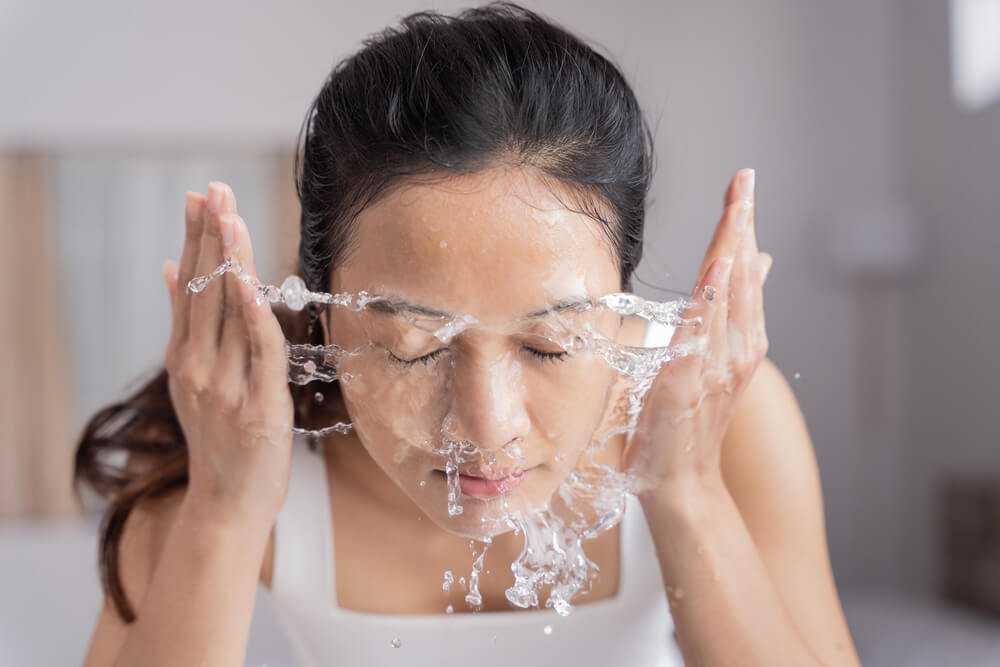Tap Water & Contact Lenses - video
Here's why you should keep your lenses away from water
Water is essential for life, but when it comes to our eyes and specifically our contact lenses, tap water may pose potential risks. If you are a contact lens wearer, you will have been warned not to soak your lenses in tap water and not to shower, swim, etc with your lenses in. You may have heard all the scare stories and wondered why they exist, here our optometrist explains why water and contact lenses don't mix, and why it can be harmful to your eye health.
1. The Composition of Tap Water
Tap water is generally considered safe for drinking purposes due to all the extensive purification processes it undergoes in modern treatment facilities. However, tap water still contains tiny microorganisms and minerals. While these elements might be harmless when ingested, they can be problematic for the eyes and for contact lenses.
2. Acanthamoeba Keratitis: A Rare But Severe Infection
One of the most serious risks of exposing your contact lenses to water is the potential for an infection called Acanthamoeba keratitis. This painful eye condition is caused by a microscopic amoeba found in various water sources, including tap water. Nearly 85% of Acanthamoeba cases occur in contact lens wearers and the main risk factor for developing it is exposing contact lenses to water.
Acanthamoeba has been found in air, dust, soil, and water (including tap water), when contact lenses are exposed to water these microscopic amoeba can get trapped below the lenses meaning your eye is exposed to them for longer, this can lead to infection. The symptoms of Acanthamoeba Keratitis include-
- Severe pain
- Redness
- Blurred vision
- Sensitivity to light
- A feeling that something is in the eye
If not treated promptly and properly, it can lead to permanent vision loss or even blindness. If you experience any of these symptoms see an eye care professional immediately.

3. Harmful Minerals and Deposits
Tap water contains minerals such as calcium and magnesium. When contact lenses are exposed to these minerals, they can bind to the lenses which then leads to deposits. Over time these deposits can irritate your eyes and affect the clarity of the lenses, making them uncomfortable to wear, and at the same time reducing your vision quality. This is particularly problematic for soft contact lenses, which are more porous and can absorb contaminants much more easily compared to rigid gas-permeable lenses for example.
4. pH and Osmolarity Concerns
The pH level of tap water can vary by location, but it is generally neutral or slightly alkaline. Our tears on the other hand have a slightly acidic pH. When contact lenses are exposed to tap water, it can alter their pH balance, causing discomfort when they are placed back in your eyes. Additionally, the osmolarity of tap water is different from that of the tear film on your eye's surface. This difference can cause your lenses to swell or shrink affecting their fit and comfort.
5. The Role of Multipurpose Solutions
Manufacturers spend a lot of time and money on researching and developing specific solutions for contact lens care, to disinfect lenses and maintain their integrity. These solutions then go through the process of having to prove they are effective against a wide range of bacteria, fungi, and amoebae. Moreover, they maintain a pH and osmolarity close to that of natural tears, ensuring the comfort and safety of the lens. If you use tap water instead of these specialised solutions you are essentially skipping the disinfection step and putting the hygiene of the lenses at risk.
Our Optometrists Recommendations for Safe Contact Lens Wear
- Always use fresh multipurpose solution: Never reuse or top off old solution.
- Always empty the lens case after removing your lenses, rinse it with fresh solution and let it air dry.
- Avoid water exposure: Whether it’s tap water, swimming pools, hot tubs, or any other type of water. If you have to swim it is advised to wear waterproof goggles to protect your eyes.
- Always follow your optometrists' instructions:
- Visit your optometrist on a regular basis to ensure your eyes remain healthy and always follow their recommendations regarding lens care.
- Replace your lens case: Old or contaminated lens cases can be a source of infections. It’s recommended to replace your lens case at least every three months.
To conclude, while tap water might seem harmless, its interaction with contact lenses can lead to very serious eye health issues.
By understanding the risks pointed out above and sticking to our safe lens care advice, you can keep your eyes, safe, and healthy, and ensure clear and comfortable vision.
Related Articles
- What is Acanthamoeba Keratitis
- How to clean your Contact Lenses
- How to Wear Contact Lenses Safely
- Contact Lenses and Eye Health
- Can I wear Contact Lenses when Swimming?

